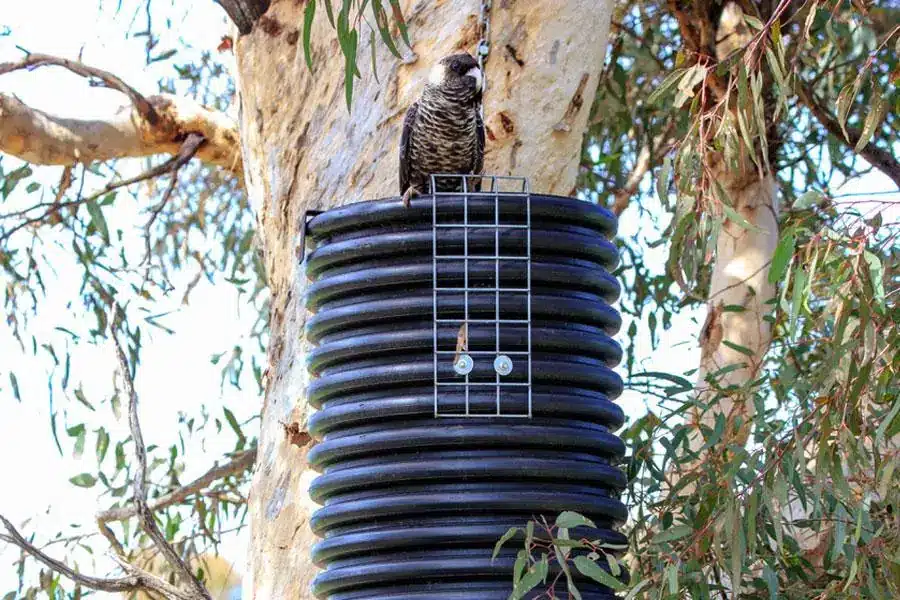
Black Cockatoos are a feature of the diversity in bird and animal species found in Australia. Yet, like around the world, bird species are in decline with many becoming endangered or extinct. One such species is the Carnaby’s Cockatoo (Calyptorhychus latirostris), one of three species of Western Australian (WA) Forest Black Cockatoos. Carnaby’s Cockatoos stand around 55cm, weighing between 500-800 grams, with brownish black feathers and a distinctive large white band on tail feathers.
The main factor in declining Carnaby’s Cockatoos populations over the last 50 years has been the loss of breeding habitat – natural tree hollows which take between 150 and 230 years to form. Landcare SJ, and environmental community organisation based in Serpentine-Jarrahdale, WA has been working to reverse the decline in species since 2005, by building artificial nesting boxes with volunteers, known as the COCKATUBE®. Landcare SJ is part of a wider network of organisations aiming to protect and increase species numbers.
Cockatubes are fitted with a solid base incorporating holes for drainage, wood chips to create a dry egg mat, and a galvanised mesh ladder, for climbing in and out of the hollow. A sacrificial hardwood post was inserted for the birds to chew. Horizontal installation in suitable trees at nesting height, opposite to prevailing weather mimic ‘chimney stack’ type natural hollows.
Midalia Steel Welshpool assisted Landcare SJ’s 100+ Cockatubes for bushfire recovery project by donating mesh for the ladders for over 100 Cockatubes sent to the east coast. Other suppliers chipped in with donations of pipe and hardware, over 40 volunteers contributed their time to make the Cockatoo tubes, and the Australian Defence Force Joint Logistics Unit arranged deliveries to South-East Queensland, Victoria, and to Kangaroo Island. COVID-19 has slowed progress of installation during 2020, but plans are well under way to support breeding habitat of the Glossy Black Cockatoo species.
Please contact us for any feedback or media enquiries about this content.
